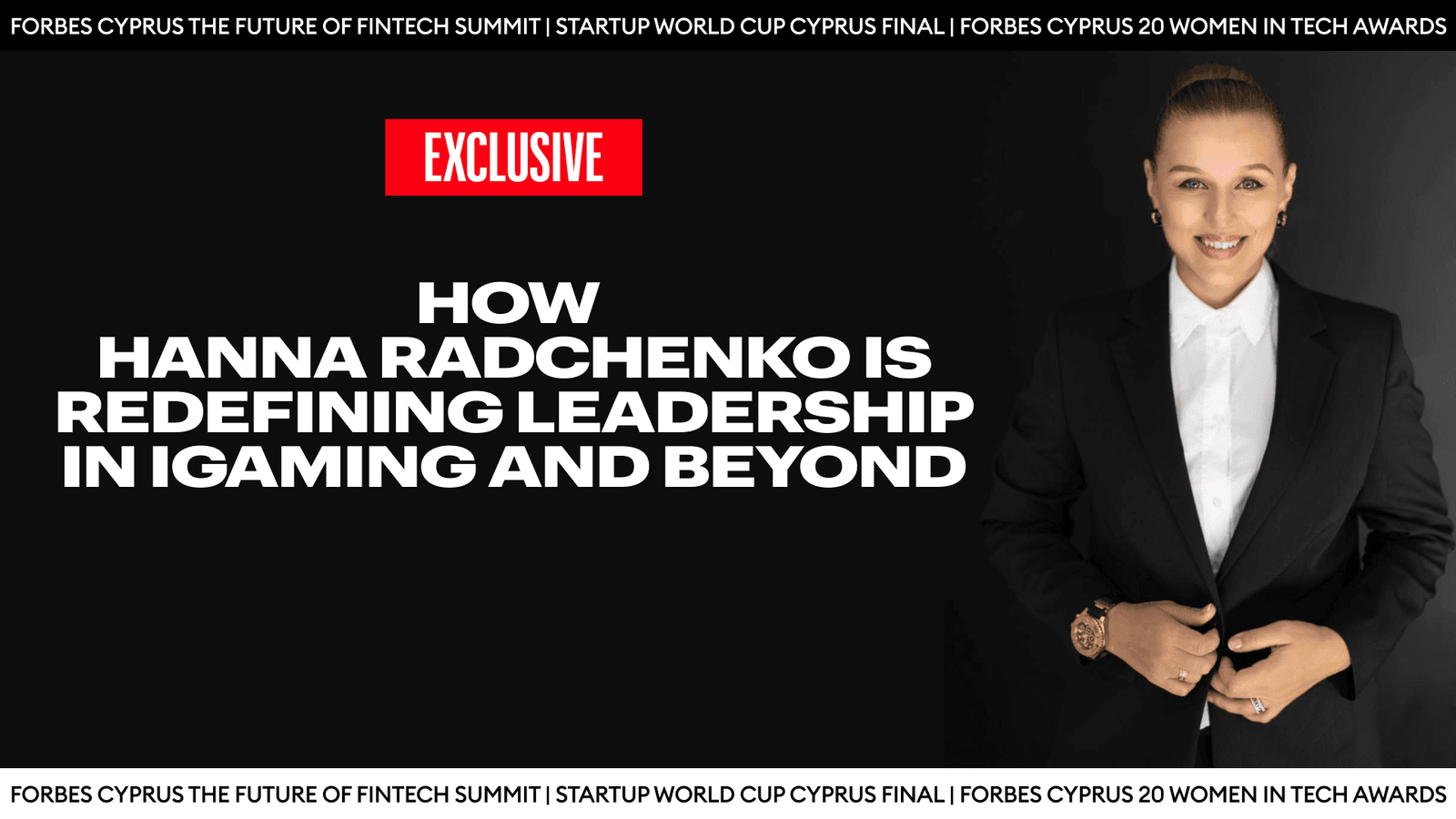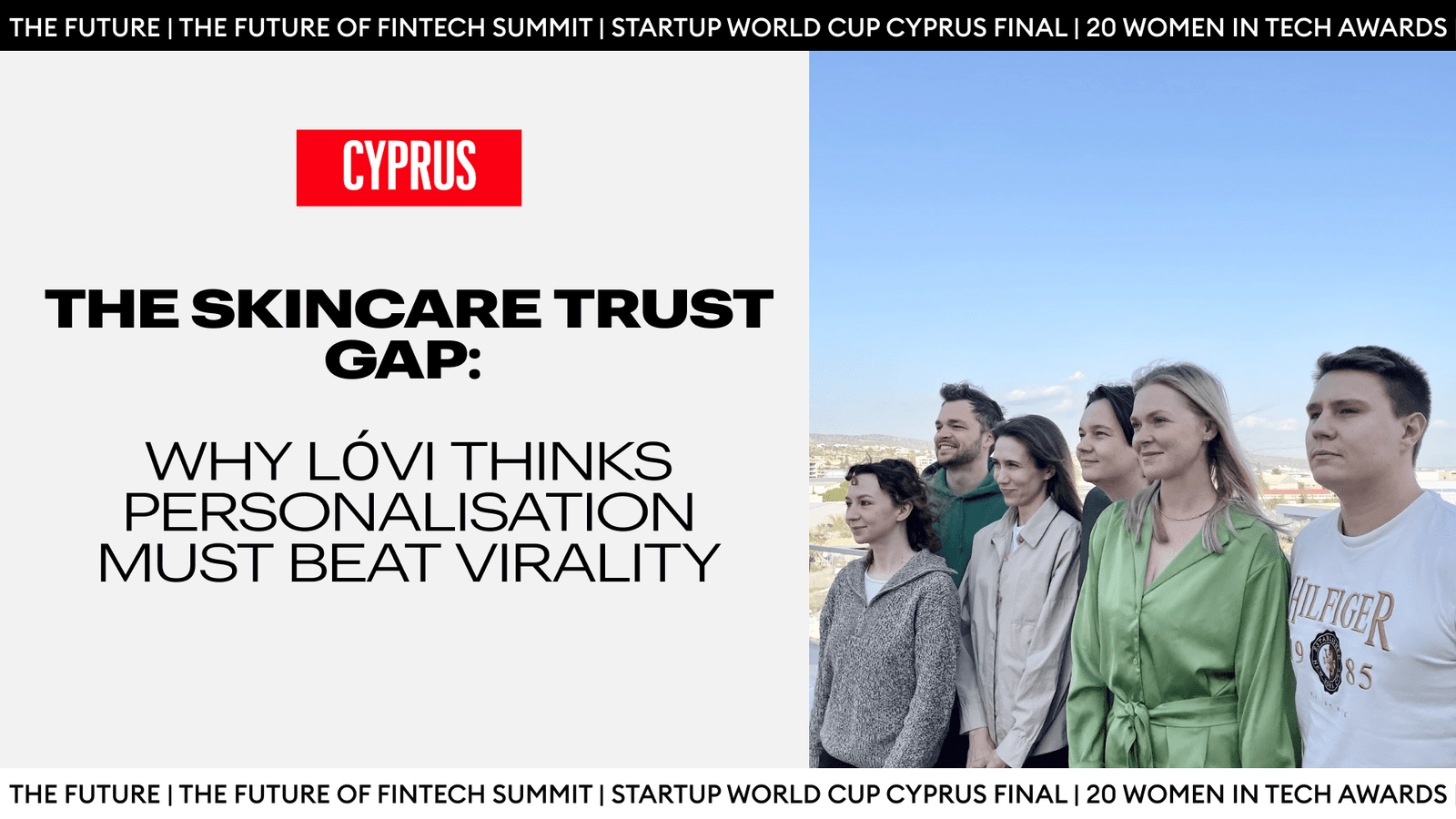It’s not every day you come across someone who genuinely seems to operate in a different gear — around the clock, without pause.
But that’s exactly the kind of relentless, sharp energy Hanna Radchenko brings to the game. As CEO, she’s the driving force behind Apercon, the executive search firm that’s become a go-to name in iGaming, fintech, and fast-moving industries where speed and precision are more than nice-to-haves — they’re non-negotiable.
Follow THE FUTURE on LinkedIn, Facebook, Instagram, X and Telegram
Over the last two decades, Radchenko, with her team, has shaped Apercon into a focused, high-impact recruitment partner that goes way beyond matching résumés to job titles.
This is the team investors and founders call when they’re facing market chaos, leadership exits, or ambitious scaling — and need results yesterday.
Next up?
Set to launch in 2026, the new arm will zero in on the development of products, content and games, software, and B2B solutions for iGaming infrastructure. Smart, international, and always one step ahead — that’s the Apercon mindset.
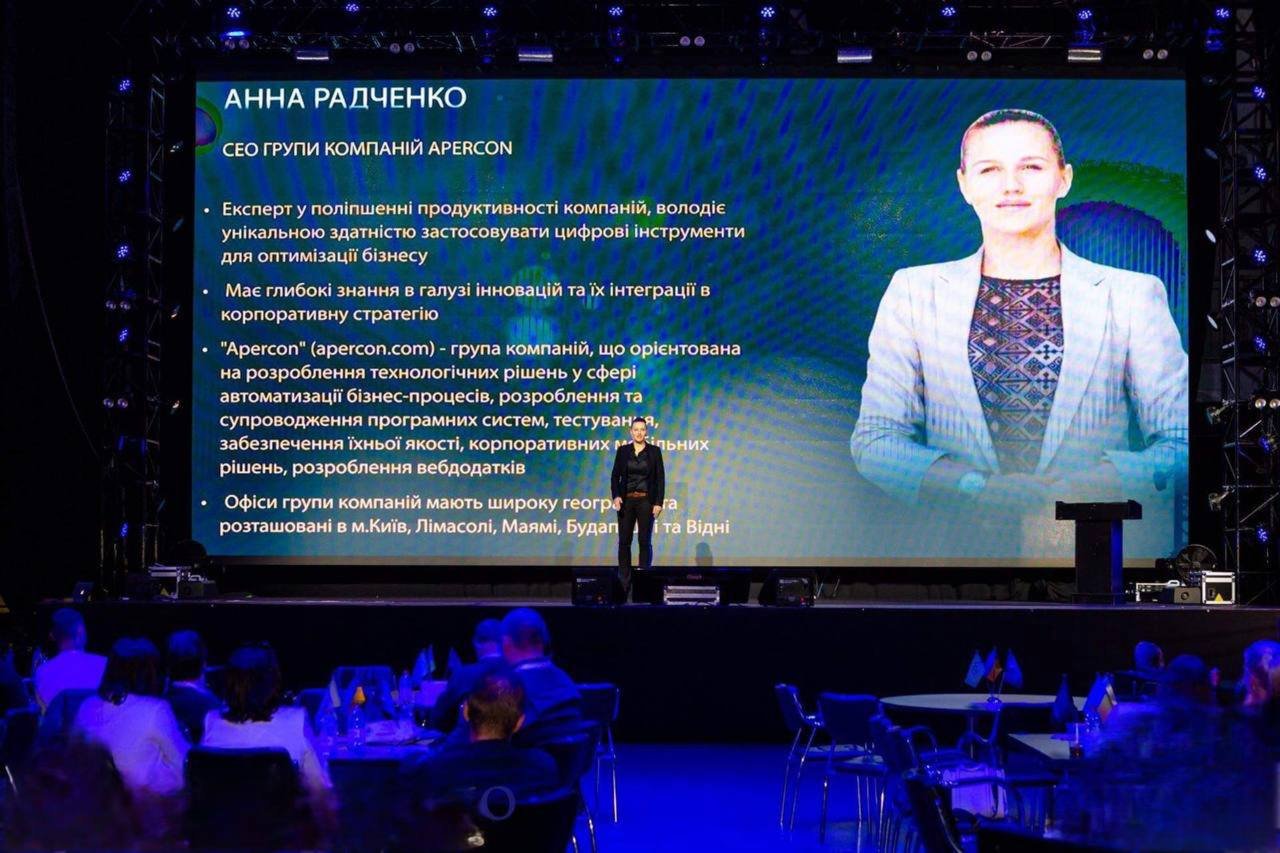
You’ll spot Radchenko on stage at summits, where her straight-talking style cuts through the fluff.
Whether she’s helping a fund build a C-suite from scratch or piloting cultural mismatches between markets, one thing is clear: when others hesitate, she already knows what’s next.
How Hanna Radchenko is redefining leadership in iGaming and beyond
Q. Apercon has established itself as a leading recruitment company in the iGaming, fintech, and beyond. What specific strategies help you maintain a competitive edge in this dynamic industry?
A: We have been working in C-level recruitment for 22 years, 13 of which have been in iGaming.
We have a big international team in different locations of our representative offices – Kyiv, Budapest, Vienna, Malta, Spain, and Miami.
Our main principle is to operate only within our area of expertise. We deeply understand the specifics of business process organization in B2C and B2B operators, providers, and service companies.
We follow the principle of continuous improvement, always being as open and honest with both our partners and candidates.
Thanks to our deep niche expertise, we generate unique staffing solutions for our clients.
Q. How does Apercon stand out amid growing competition?
A: Apercon always responds promptly to partner/client requests, adhering to the principles of reliability, systematic approach, and consistency.
We are result-oriented. For us, work is a way of life, and money is a by-product of doing the job well.
We don’t aim to earn all the money in the world, but we always strive to do our work with quality, service, and client focus. We have a financial ambition that we want to achieve: growing from €3,500,000 to €5,000,000 in monthly turnover.
This ambition and healthy competitive drive make us highly valuable and efficient partners. Our company’s DNA is fast-paced, dynamic, energetic, and achievement-driven.
Q. What lessons from other industries have influenced your approach to executive search?
A: We were fortunate to be at the forefront of the distribution business in Ukraine and Europe, recruiting top executives for over 20 years.
We worked with the most aggressive industry—spirits and liquor, the most dynamic—retail, the most complex—manufacturing, and the most innovative—IT.
Our extensive experience with challenging businesses has exposed us to environments shaped by politics, fierce competition, and complex problem-solving.
At the core, all industries share a fundamental requirement: having the best expertise in their field to achieve high efficiency.
Management, at a global level, is a system based on principles that define how businesses operate and interact. Ultimately, all businesses pursue the same overarching goal—increasing their capitalization and generating revenue.
Just like in any other industry, the way a company builds relationships with its employees, the values and conditions it fosters, and the cultural code that defines its communication all determine its long-term stability.
Hiring trends and market dynamics
Q. What hiring trends are shaping the future of recruitment in iGaming and fintech?
A: On a global scale, the top three hiring trends are globalization (multinationalism and expanded hiring geography), technological development, and selective hiring.
The market is still forming. Fintech is more stable, while iGaming is more chaotic.
This is due to the influx of significant capital from outside the industry, attempting to transform the sector and impose its own rules of the game and hiring standards.
However, this doesn’t work. The lifespan of such projects, even with relatively high capitalization, is short—3 to 5 years.
Let me explain: people coming from outside the industry, but with capital, often believe the specifics of the sector are unimportant and that anyone can be a top manager—someone trusted, a relative, a nanny, or a leader from another business, such as retail or banking.
But that’s not the case.
To nurture strong and effective projects with rapidly growing GGR, the expertise must align with financial ambition.
Q. What qualities of a leader have become critically important in today’s job market?
A: Niche expertise, flexibility, communication skills, and a passion for the work.
Q. Are there any new trends in recruitment that companies should prepare for now?
A: Thank you for this important question. Because we are the ones setting the trends. In 2002, we set the trends in recruitment and building systematic sales departments for a challenging and young distribution market.
In 2008, we led the IT recruitment market, and since 2013, we have been at the forefront of recruitment in the iGaming sector.
Companies should prepare for the battle for the best talent if they want to maintain leadership or scale their business.
One of the key recommendations we give our partners is multinational recruitment.
Don’t fear language and cultural barriers; they’re not discomfort but rather an area for growth.
Among the top recruitment trends are the hiring of expats, hybrid work models, and employee well-being.
Compliance and regulation in iGaming
Q. The iGaming industry is experiencing rapid growth, but with it comes increased regulatory scrutiny. How does Apercon navigate these challenges to ensure the right specialists are matched with the right companies?
A: The key changes are happening in two main areas: regulatory/licensing laws and taxation.
We closely monitor all major developments—from regulations in Malta, Curaçao, and Brazil to tier-1 to tier-3 markets, including Anjouan and Vanuatu.
This allows us to accurately assess the feasibility of hiring requests and candidates’ market expertise during the recruitment process.
Additionally, we have a dedicated department that provides company registration and licensing services.
Hiring mistakes and cultural mismatches
Q. What are the most common hiring mistakes in iGaming?
A: One of the most frequent mistakes is hiring senior executives who are convenient rather than competent. More than half of companies make this error, and the cost is wasted time and resources.
A top executive should be significantly more knowledgeable than the hiring manager in their area of expertise. For example, a Chief Product Officer should have a deeper understanding of the product than the CEO—otherwise, why hire them?

Recruiting “comfortable people” who primarily serve as loyal representatives of investors often leads to predictable consequences: unclear objectives, unrealistic goals, prolonged hiring cycles, negative candidate feedback after interviews (since candidates also evaluate companies), a damaged market reputation, and slower commercial growth. This is a common scenario in non-core investments.
Comfortable people can cost you growth, time, and credibility.
If a C-level position remains unfilled for more than 3–6 months, it is often a sign of unrealistic expectations and a lack of market understanding.
Q. Are there conditions under which effective hiring becomes difficult?
A: Effective hiring is hard to ensure when work regulations are not followed.
Let me explain: for example, when interview feedback is provided late or inconsistently.
The reasons may vary, but the bottom line is that the response after an interview should be a clear “yes” or “no.”
And it should be given within 2–3 days at the latest.
However, people often start to think that giving feedback over a prolonged period is acceptable, justifying it by saying that good specialists who are searching confidentially aren’t in a rush.
But that’s not true. Good specialists are always in demand.
That’s why in such cases we usually decline to cooperate, except in rare instances involving complex and interesting hiring processes at large corporations.
A separate topic is filling “evergreen” roles—positions that remain open within companies for 1–2 years. This also includes executive-level vacancies. For these categories, we have a dedicated approach and technology.
Q. Q. What challenges do investment funds face when hiring specialists for iGaming projects?
A: Top-tier executives who are crucial for a fund’s success often prefer to stay within large, well-established corporations. For internal recruitment teams, attracting such talent is nearly impossible.
Q. Is there a shift toward institutional investment in iGaming?
A: Not a complete shift, but there is a clear trend toward private capital consolidation.
Since only public brands can effectively compete in certain markets, and the industry remains highly scalable, smaller investors operating within the same niche are increasingly joining forces to establish investment funds.
This allows them to expand capital and leverage shared expertise, resources, and opportunities, making collaboration one of the key drivers of market evolution.
Q. Can you share an example of how Apercon helped an investment fund overcome hiring challenges?
A: Yes, we’ve handled numerous cases at different levels. Recently, we successfully filled a CEO position for a UK-based investment fund, which is part of a major iGaming holding company with over 10,000 employees.
The role came with a €25,000 monthly salary.
In complex recruitment cases, we often go beyond executive search and step into management consulting, helping funds optimize their hiring strategy and secure the right leadership.
Cyprus as a hub for iGaming leadership
Q. Cyprus has become a key hub for iGaming companies. Have you worked with firms that had to choose between Cyprus and other jurisdictions? What factors influenced their final decision?
A: Yes, of course. We have assisted in setting up management companies, family and single offices, investment funds, and traditional businesses.
The choice always depends on the business owner’s vision.
Recently, we helped establish a management company for our clients, with the decision coming down to Dubai or Cyprus.
Cyprus is more than tax — it’s community, access, and continuity.
The key factors influencing their choice included the specifics of the business and the type of assets, alignment with the regulations of the chosen country, tax system, and economic stability—low taxes don’t always guarantee asset security.
After these factors, employment opportunities, ease of doing business, hiring conditions, and the flexibility of immigration policies also played a role.
Today, the most common choices are Cyprus, Dubai, London, Malta, and Spain.
Q. What makes Cyprus attractive to iGaming companies beyond tax benefits?
A: The presence of a specialised community and ease of hiring, a favourable climate, and accessible immigration laws: obtaining a Cypriot passport in four years.
Crisis leadership and urgent placements
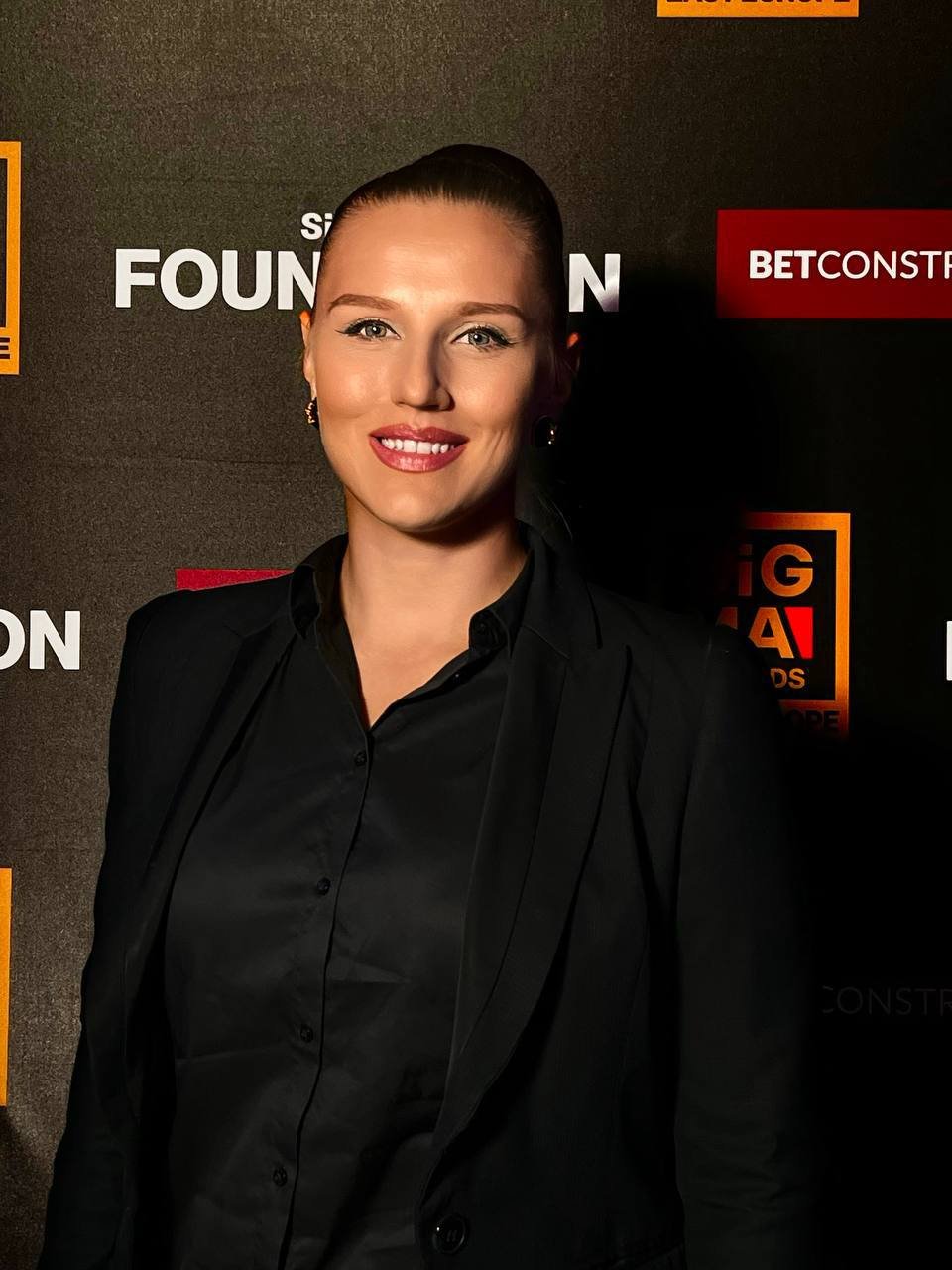
Q. How do you find a balance between speed and thorough candidate vetting in urgent assignments?
A: There is no balance; there is a system. The organization of our work is similar to production: we have clear regulations that we always follow.
We are certified by the Quality Management System (QMS), which guarantees the reliability of the process. There can be no exceptions to the rules. For certain partners with whom we have been working for a long time, we can react quickly to urgent requests, but this happens thanks to the fantastic work ethic of our team and overtime, which we consciously agree to, understanding the urgency of the need.
For us, speed is not stress — it’s lifestyle.
Q. Have you ever had to urgently replace a leader?
A: 60–70% of recruitment orders occur after unexpected dismissals or due to dynamic growth. Therefore, a fast pace is our natural life rhythm.
Q. Through which channels do you communicate with candidates? How can one potentially become your candidate?
Our contact details are available on the official website. To stay updated on opportunities and changes, we invite you to subscribe to our Telegram channel, as well as follow our pages on LinkedIn, Facebook, and Instagram. Additionally, we are actively launching services for potential candidates, such as exclusive representatives, coaching, and we have an extensive referral network within the HR community.”
Q. What is the fastest executive appointment Apercon has made?
A: We filled the position of CEO tier-3 in India with the first candidate, and closed the CFO position at one of Europe’s top 5 payment aggregators in 3 days, with the first resume.
There are many quick closures in the regular market, from retail commercial directors to financial directors and marketing directors.
I want to highlight that fast closures are a joint process, where rapid closing is possible only with two key factors: efficient work and the presence of adequate offer conditions—market-level salaries, a sound approach to relocation, and other details.
Q. The phrase “We Are there emerging markets where iGaming recruitment is more challenging?
A: No, recruitment is straightforward and well-structured across all markets—from Europe to India, LATAM, Africa, and Asia.
We hire for all regions. The main challenges stem from cultural differences.
For instance, when projects backed by CIS investors aim to attract executives from leading global companies like William Hill, Stake, Entain, or Flutter, they often face a mismatch in management styles, operational approaches, and corporate culture.
In such cases, we frequently shift the focus to local hiring, ensuring a better fit for the business environment.
Investing in the iGaming sector
Q. Many investors with no iGaming experience are entering the sector. What criteria should they use to determine if a project is a solid investment or a risky bet?
A: It’s best to engage industry experts or a consulting firm for project evaluation.
Investors without iGaming experience often apply classic business logic and unit economics, but this approach isn’t entirely correct. iGaming has its own intricacies—platforms, geographies, traffic, marketing & CRM, and retention models.
Understanding the nature of the investment—whether operational or venture capital—and its size is crucial. Does the investment match the financial objectives?
A reliable project should have a clear regulatory foundation, financial stability, a strong reputation, and advanced technological infrastructure, including a robust payment system.
We provide turnkey investment project solutions, with current projects totaling approximately €56 million.
It’s not just about capital — iGaming success depends on deep operational insight.
Our key recommendation is to allocate a budget for a thorough project audit and the recruitment of a strong CEO—these are the primary steps to securing an investment.
Q. Are there specific trends driving investment growth in this sector?
A: Yes, one of the biggest drivers is the myth of iGaming—the perception of easy money and a luxurious lifestyle.
Over the past 3–4 years, the industry has undergone major transformations, significantly raising the financial barriers to entry.
For instance, in 2020, a startup budget of €1.5 million was enough to enter the Indian market. Today, that amount needs to be 4–5 times higher, due to rising competition and increasingly unstable financial conditions.
The market was valued at $70 billion in 2020 and ended 2024 at $94 billion, with an annual projected growth rate of 9–13%.
By 2029, the industry is expected to reach $153.21 billion, driven by regulatory expansions, technological advancements, and a growing user base.
While iGaming is highly profitable, it is also fast-paced and demanding.
Success in this sector is not for those looking to get rich quickly but for those who are deeply passionate and committed to the industry.
The key to thriving in iGaming is matching its intense speed—otherwise, it can be overwhelming.
“Always know what to do” reflects Apercon’s focus on problem-solving.
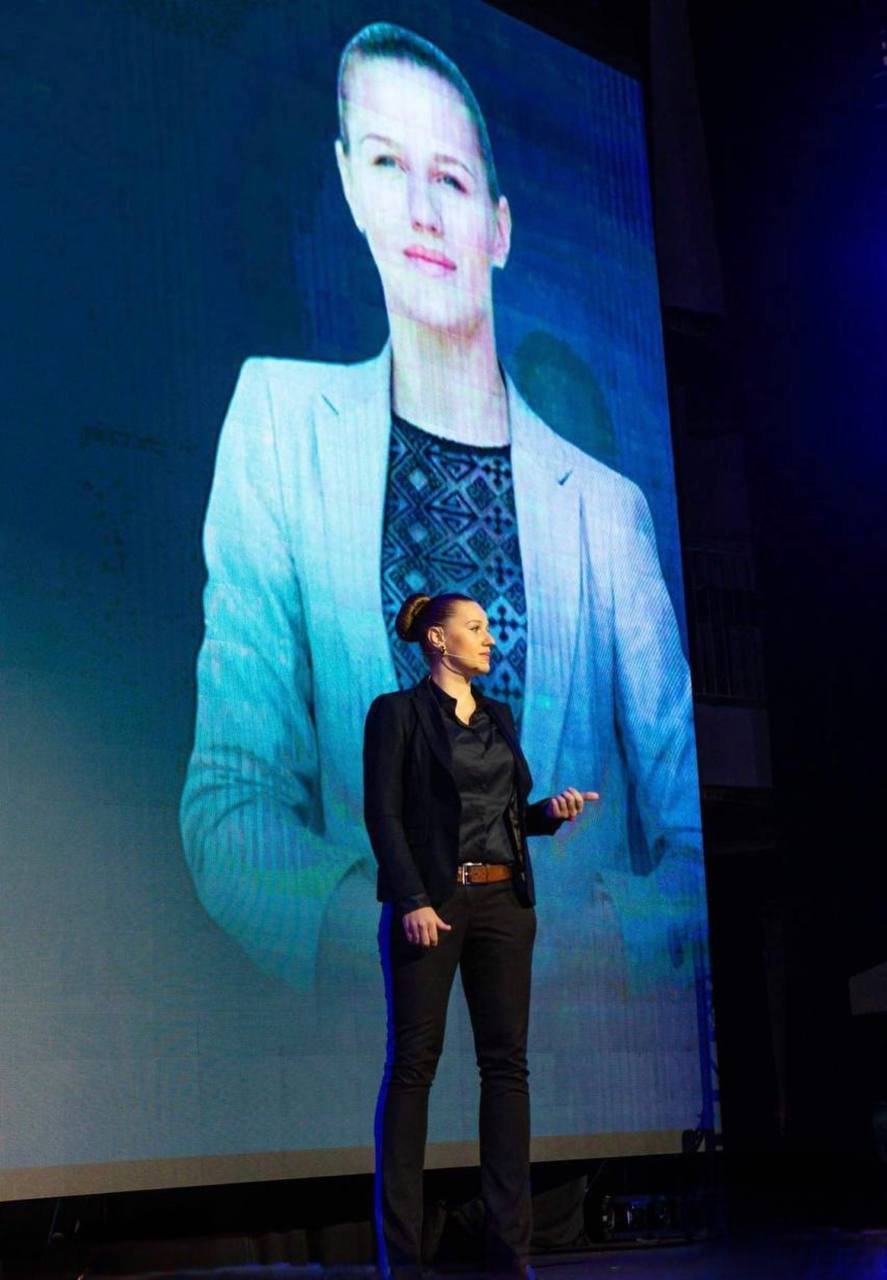
Can you tell us about a particularly challenging case when your team managed to solve a recruitment task that others couldn’t handle?
A: These include positions like СЕО and СОО for licensed operators in the UK and СЕО for Kazakhstan, VP of Engineering, rare and innovation heads of AI departments.
But the most memorable case was the position of Head of Talent Acquisition for one of Europe’s leading online entertainment operators, with a staff of nearly 5,000 people.
Trust me, positions in recruitment and personnel management are among the most challenging. People who possess professionalism, empathy, patience, stress resistance, and the ability to work with large volumes of information, with no bad habits, reliability, and a combination of acceptance and love for people—are a rare find.
We are very proud of this hire and thrilled for our partners.
Q. Have you ever had to completely restructure the leadership of a crisis company?
A: Rather, we change the top management. Yes, we have experience in replacing the entire top team, except for the CFO, at the request of the shareholder.
Q. Can you give an example of a situation when an urgent leadership replacement was required?
A: Yesterday, one of our clients, a large international fuel retail company, asked us to urgently find a commercial director for their network.
Cultural fit and expectation management
Q. Some top executives find it difficult to integrate into a new company, even if they seem like ideal candidates. Have you ever dealt with situations where a significant hire didn’t meet expectations, and how did you resolve it?
A: It’s an experience. Hiring the wrong top executives is an expensive affair. We see people who may have different paces and business perspectives than the company.
Therefore, even when partners have preferences for hiring certain individuals and we see that it’s not an effective solution, we help make the optimal decision.
This is our job—by combining efforts, we ensure the result.
Q. How do you handle situations when a leader doesn’t meet expectations?
A: We never have expectations. I emphasize again that, for effective leadership selection, three key pillars are essential: real business tasks comparable to the market, real resources the leader is willing to leverage to achieve the planned result, and decent working conditions.
Another important point regarding expectations when hiring top executives: when hiring top managers from industry-leading companies, you must understand that this is not the case where you hire a star and spend more on compensation and less on execution.
The more significant the candidate’s experience, the larger the amount of resources they are accustomed to managing.
Q. Have you ever replaced a leader despite their strong resume?
A: No, we haven’t. We clearly understand the client’s profile and the candidate who will be effective for the position.
If the question is whether it’s possible to prefer a less strong candidate, then yes. Being a leader is a great responsibility.
Not everyone can withstand the test of money and power.
It’s crucial that, as leadership and professional qualities develop, authoritarianism, toxicity, and an open leadership model are not fostered—personal example, mentorship, and team development remain.

Q. What steps does Apercon take to ensure cultural and strategic alignment?
A: Kaizen: continuous improvement of the production process and the growth of our team, both personally and professionally.
We regularly participate in specialized events and exhibitions like SiGMA, SBC, Next.io, and ICE. We research the industry, we develop, and we feel the industry because we live in it.
We actively support the course of sustainable development through joint projects focused on sports, youth empowerment, environmental greening, and mental health. In 2024, we were honored with a prestigious award and ranked among the top 100 sustainability leaders.
Values, leadership integrity, and the road ahead
Q. Recruitment is not only about talent acquisition but also talent retention. Have you helped companies improve their talent retention strategy after a series of top-management dismissals?
A: Yes, typically this involves consulting on building HRM systems (human resource management).
Retention is influenced by several factors: corporate environment, management consistency, and a progressive KPI system – a fair and transparent reward system for work performed.
The most challenging task is ensuring staff retention in companies with an aggressive approach and micromanagement.
Q. Why do some companies struggle with retaining key specialists?
A: Because they forget that business is made by people, not only money.
Therefore, policies and regulations should be based on values of openness, transparency, and reliability, especially in fulfilling commitments to employees.
We also take responsibility for the quality of hiring, which is why we only work with companies that fulfill their obligations and care for their staff’s development as much as they care for business performance. The list of these companies can be found in the client section on our website.
Q. Can you provide an example when ignoring your recommendations led to problems? How do you properly inform a company that its leadership approach is ineffective?
A: Openly. No special procedures are needed for this.
An honest and open approach reflects the level of professionalism and maturity of the leader; these are operational matters, nothing personal.
Q. You led Apercon during a period of significant changes in the industry. What was the most difficult decision for you, and what did it teach you?
A: There were several such decisions.
One of the toughest was parting ways with dishonest partners.
Over time, this decision proved the absolute correctness of our corporate policy and personal stance: never compromising with your conscience.
Another difficult decision was changing part of our production cycle after the onset of the war.
We had to update technological solutions that had been with us from the beginning to adapt to new challenges.
The industry was rapidly shifting towards transparency, digitalisation, and new security standards.
We realised that to scale, we needed to not just update but fundamentally reassess our approaches.
This decision once again reinforced the idea that leadership is not about preserving the status quo — it’s about constant forward movement and being ready to make difficult choices for the future.
The key is to communicate honestly, maintain respect for people, and be the first to go through change. When you lead by example, your team will follow you even through storms.
Q. Working in a highly competitive and stressful environment, where speed and accuracy are crucial, how do you personally manage stress and maintain focus when solving complex recruitment tasks?
A: For us, recruitment is a lifestyle; it’s not just a job. Each member of our team has a high work capacity because it aligns with our interests.
The wisdom of Confucius, “Choose a job you love, and you will never have to work a day in your life,” is something we manage to live by.
My personal recipe is simple, but it’s not for everyone: discipline and sports.
This is something my mother, owner of our APERCON group, my best teacher and mentor, taught me. A person lives as long as their deeds and memory live on. Together with the Apercon team, we continue to bring ideas to life and maintain the high quality of our products and services, passionately continuing the business that was envisioned and created by my mother, Jenny Radchenko.
Partnership and integrity are always more valuable than money.
Q. How do you balance strategic expansion with maintaining Apercon’s core values? Have you ever had to choose between growth and staying true to the company’s mission?
A: No, such a choice has never been before us. Partnership, values, and integrity are always more valuable than money. We are always true to our principles.
We always follow our professional path—recruiting C-level specialists and management consulting, which combines various directions: management consulting for owners, investors, and top executives, product development and outsourcing (games, CRM systems, AI solutions), financial and investment consulting.
We approach strategic expansion correctly: we expand only within our area of expertise, and therefore our core values—professionalism, reliability, consistency, and openness—remain unchanged.
We are always honest with our clients, and they repay us with their trust and partnership.
Q. Considering Apercon’s expansion into investments, AI, and new business areas, how do you see your role in the company over the next five years?
A: Some may say they set market trends, but that’s not entirely true: the market sets the pace, rhythm, and creates the conditions for decision-making.
The market is the sum of the decisions made by each participant, thereby influencing all others.
We see our role as visionaries in transforming the market, raising its professional level, and scaling it.




